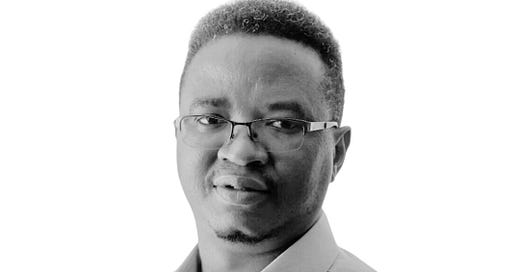Welcome to “Global Witness, Globally Reimagined.” You get a glimpse here of the kind of work that I do both at Church Mission Society and Missio Africanus where I help students of all levels (from unaccredited courses to PhD) explore the theological (and missiological) implications of the rise of world Christianity. In this newsletter, I focus on the subject of global witness in the context of the twenty-first century. Every week, I share one thought that has spoken to me in the week, some resources that I trust will be helpful to you, and three exciting quotes about mission to give you something to think about. I pray one of these will energise you in the coming week.
1. Thought I Can’t Shake Off
There are quite a few things that I find interesting about the religious lives of Westerners. The most obvious one is the belief that one can be spiritual but not religious. This dichotomy always beats me. Religion is what humans do to relate to the spirits. When it comes to Western Christians, it is, without a doubt, the fact that many of them talk about a spirituality that is possible without the spirits. I wrestled with this when my doctoral supervisors required me to read Western theology of the Spirit. While I appreciated the systematic study of the Holy Spirit in the Scriptures—and this is a shout out to Jurgen Moltmann and Michael Welker—the Spirit they wanted me to understand was quite different from everything I had experienced growing up in Africa. This Spirit was too clean, too domesticated, too docile, too passive and, of course, too boxed-in. It rendered itself too much to human understanding. Its entire work was, at least as I understood it, limited to what could be comprehended and explained by the human mind. I suspected back then, and I still do today, that this domestication of the Spirit is a power move. Many cannot handle not being in control, and the Spirit is too unpredictable. It also serves to mechanise human bodies to justify slavery and wars—they behave as if there is nothing more to the human body.
One more thing: it was too lonely. It existed in a world where it was the only spirit.
The conversation about the spiritual power of the blood that I started last week belongs in this discourse. The Scriptures contain many stories that show that the blood has active spiritual powers. Whether it is Abel’s blood that speaks, or the blood of animals that covered the sins of Israel, or indeed, the blood of Jesus that washes sins away, the blood is not just this red liquid that flows in our veins.
For the life of the flesh is in the blood, and I have given it to you upon the altar to make atonement for your souls; for it is the blood that makes atonement for the soul.’ (Lev. 17:11)
In African religious heritage, the blood of animals still harnesses spiritual power to respond to people’s needs. In Christianity, though, the power in the blood of Jesus does more than meet people’s needs. Not only does it wash away our sins and speak better things than that of Abel, it also makes all the spiritual power of the Almighty God (who, by the way, is Spirit)—the power that raised Christ from the dead—available to us. There is a lot we can do with that power.
2. Resources I am Enjoying
Video: Vocab Malone: Betsy Stockton, Black Christian You Should Know
This discussion brings to the fore the life and impact of the first single black American woman missionary, Betsy Stockton (1798-1865). Stockton was born to a slave mother in 1798. At seventeen, she was influenced by the 1815 Princeton Revival and went on to become a missionary and lifelong educator, despite her background and the attendant negative treatments and limitations. She was also a key figure in establishing “Princeton’s First Presbyterian Church of Color.” Of course, Stockton is just another one of the many unsung black heroes of Christian mission in history, whose various missionary works in the nineteenth century continue to attest to her significant contributions to Christian witness in her era. Hopefully, more of these stories will sustain their elevation to the limelight to help us increasingly appreciate everyone’s input in the actualisation of God’s missional agenda on earth.
3. Quotes I am Pondering
It is ironical that Western missionaries keep coming to Tropical Africa, where Christianity is already established — complete with churches and cathedrals, schools and hospitals, universities and colleges, conventions and conferences — while there is a major recession of Christian presence in their own countries of origin. — Jesse N. K. Mugambi.
Christianity is a visible manifestation of God’s mission on earth, the task of restoring creation and enabling human beings to reveal themselves as made in the image and likeness of the source Being, God. — Mercy Amba Oduyoye
It is not neocolonialism to plead the uniqueness and finality of Jesus Christ. It is not an air of superiority to herald the fact that all who are not “in Christ” are lost. It is merely articulating what the Scriptures say. — Byang Kato.
I pray that you will be faithful in whatever God calls you to do this week.




Hmm? You've got me chewing on the Spirit and diaspora as missionaries even more with this post. Thanks for helping us all get wiser
Thanks for this, Harvey. Another’dead’ area for most Europeans, but not in scripture or most cultures: the significance of ‘name ‘.
John Root